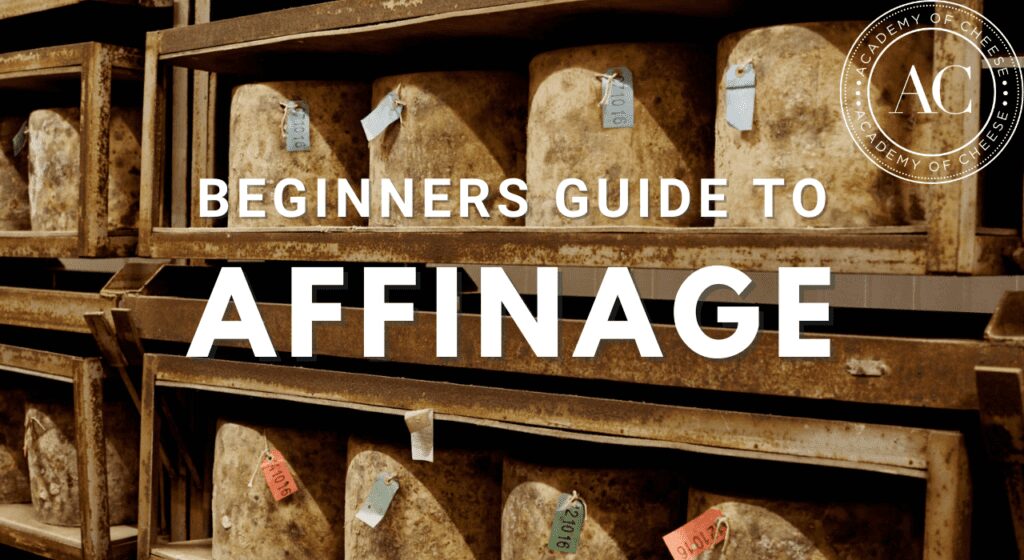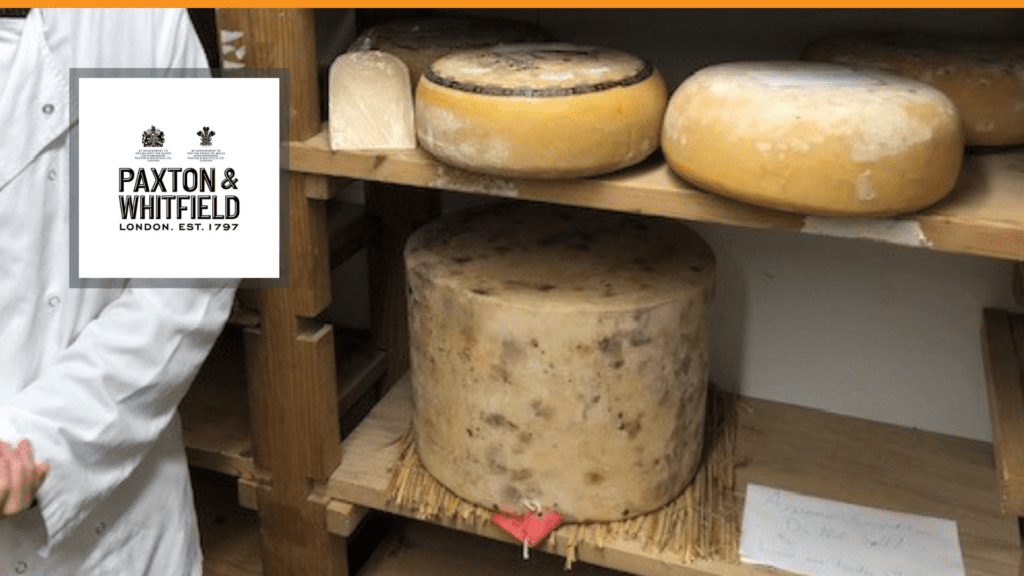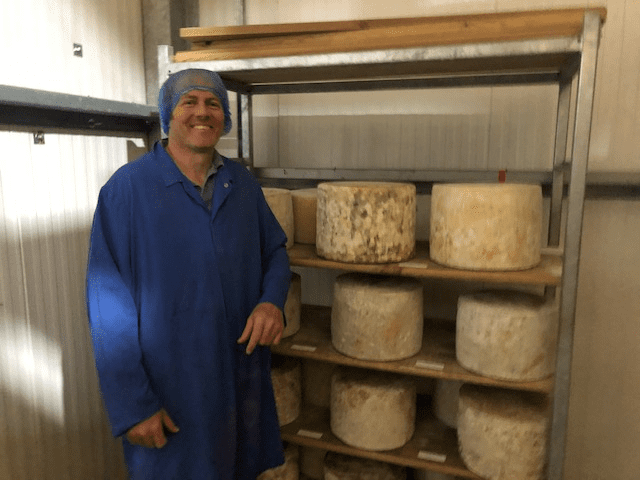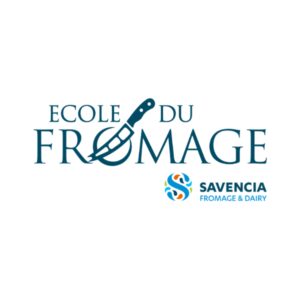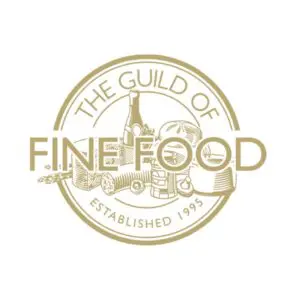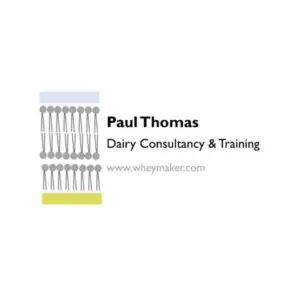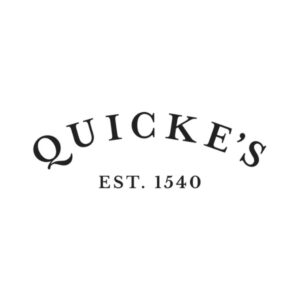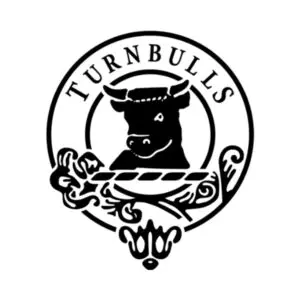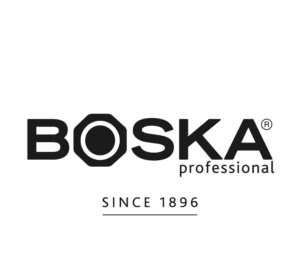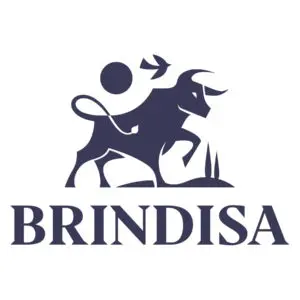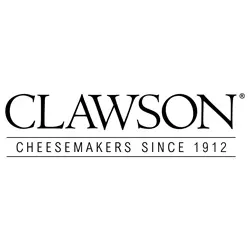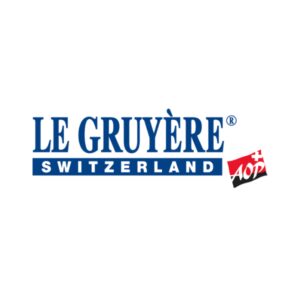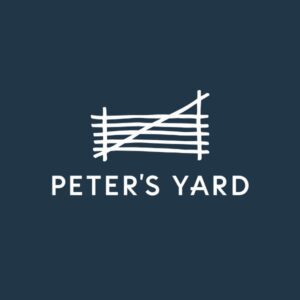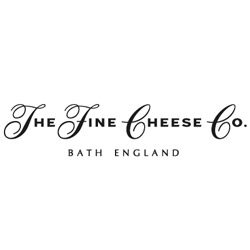In May 2021, the Academy of Cheese launched Affineur of the Year, but what does it mean to be an Affineur and why is it important?
What is an Affineur?
An Affineur is a term for someone who practices the art of affinage, which is the process of caring for, ripening and aging cheese. In French, the word means “to refine”.
So, an Affineur just stores cheese until it is ready?
No, a great deal of work is put into affinage. To an Affineur, the cheese is their baby; to be observed, cared for and nurtured. Amongst other things, the Affineur will manage the temperature, humidity and airflow of the cheese storage; they will turn the cheese at certain intervals; they will decide what to wash the cheese with and how often and choose which material to wrap it in.
What is “Affineur of the Year”?
“Affineur of the Year” is a unique opportunity for cheesemongers and cheesemakers to showcase, across the world, the skill and artistry involved in guiding a cheese to its full potential.
Why is Affinage important in cheese making?
Cheese is a living, breathing entity and is constantly evolving. How a cheese is stored and cared for has a huge impact on the development of the taste. A cheese that is expertly aged will carry more complexity, more flavours and, ultimately, more value.
So, can you make a bad cheese into a good one with Affinage?
No, excellent cheese starts with quality ingredients, good milk and a good making process. Affinage cannot undo bad animal husbandry or poor milk composition.
And now for the science bit….
After a cheese is made it continues to lose moisture; the proteins and fats in the milk break down and the rind develops. The Affineur expertly regulates the humidity, temperature and air movement surrounding the cheeses, whilst using their expert knowledge of bacteria, moulds and yeast to keep the cheese in the optimum conditions so that the microbes can do their work.
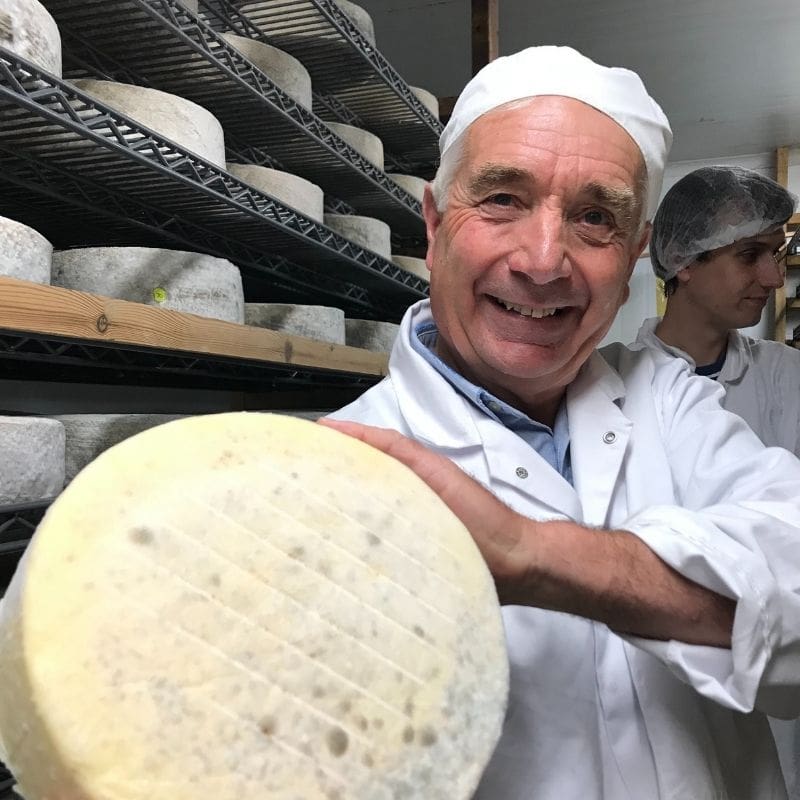
Where does this wizardry take place?
In the appropriately titled, “Cheese Cave”; this can be a man-made structure, in the middle of a building for example, or entirely natural, like a real underground cave. Natural, or built, it will be a strictly managed environment, depending on the type of cheese being aged. Some cheeses prefer a warmer environment, whereas others react better to cool, draftier surroundings. Therefore, most Affineurs will have several caves, all regulated specifically to each of their cheeses.
What are the techniques an Affineur uses?
There are several tools at his or her disposal to help guide their cheese to its full potential.
Techniques include brushing the rind with a simple brine solution, or bathing the cheese in wine, beer or cider. Hard cheese can be rubbed with oil or lard, creating a protective layer for its extended aging.
Additional washing, spraying, patting, turning, coating, piercing and tasting all contribute to the cheese’s journey to maturity.
And finally, to wrap or not to wrap. Whatever the Affineur decides is best, there is an array of materials from which to choose, including traditional cloth, impenetrable wax, or the more modern plasticoat.
GUIDE TO TASTING CHEESE
Learn about the four stages of tasting cheese and how to take tasting notes with this definitive guide to tasting cheese.
So how does one become an Affineur?
To master the techniques and understand the process is a lifetime’s work. A good Affineur must know how to coax greatness out of every wheel of cheese, which can mean training for years. Working for a Cheesemaker or Cheesemonger is a great place to start and will provide a solid understanding of the different categories of cheese and how to properly take care of them, whilst training courses, such as those provided by the Academy of Cheese , can provide the supporting knowledge and skills required.
If you’re looking to become an affineur, our level one Cheese training course is the best place to start. Click here to start your Cheese Training
Subject: Maturing, Affinage and Grading



